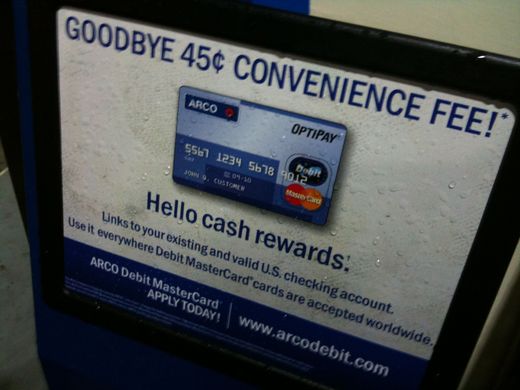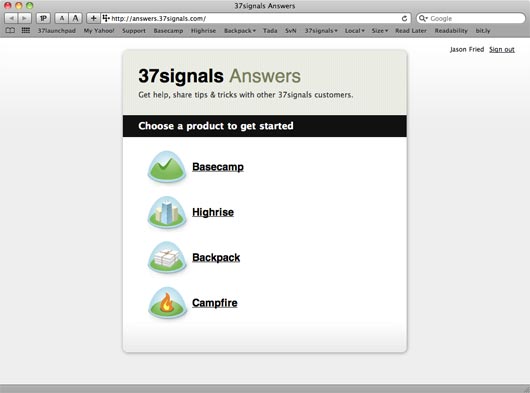
Say goodbye to convenience!
You’re reading Signal v. Noise, a publication about the web by Basecamp since 1999. Happy !

Say goodbye to convenience!
There’s more to building a great product than just studying the market or the technology or competitors. You need to have taste too. You need to understand what “great” means in a big picture sense, not just in your chosen field.
At least that’s what Steve Jobs thinks:
Great products, according to Mr. Jobs, are triumphs of “taste.” And taste, he explains, is a byproduct of study, observation and being steeped in the culture of the past and present, of “trying to expose yourself to the best things humans have done and then bring those things into what you are doing.”
Want to build a great iPhone app? Go listen to Billie Holliday. Trying to design a piece of hardware? Visit a Frank Lloyd Wright house. Aiming to write great marketing copy? Read Aldous Huxley. Need a color scheme? Go to the museum and check out some Mark Rothko paintings.
Studying masters in a wide range of fields is how you learn greatness. Their creations may not have a direct, instant benefit on whatever you’re making, but soaking them in will change the way you think and the decisions you make. (Side benefit: You’ll be a lot more interesting person too.)
Related: Acquire taste [SvN]

This “too many emails?” downgrade option from chefscatalog.com is a nice way to keep people in the fold (as opposed to merely offering unsubscribe).
Men don’t like appliances. We want things that can do lots of different things, that we can tweak and fiddle with, and then argue with each other about which one is better. Women aren’t like this, and because of this I have a feeling that it’s women who actually determine the eventual winners in consumer tech.
What topics would you like to see us address here at Signal vs. Noise and/or on the podcast?
Pages 13 & 14 of the January issue of Interface (PDF) feature an article about Jason and 37signals. Interface is a publication of the Chicago chapter of the American Marketing Association.
Of all the sources of funds for an early stage venture, revenue is the most compelling demonstration of traction. Too many entrepreneurs view fund raising as an accomplishment in and of itself…A lot of what’s written about Silicon Valley entrepreneurship is actually part of a sales pitch or positioning for the venture ecosystem.
A few weeks ago we posted about our new way of working. Small teams of three, two-week iterations, and two-month resets.
For the first two-week iteration, Team Bravo took on a revamp of our customer forums. For a couple of years we’d been using forum software called Beast. It served its purpose well, but it was time for something better.
The forums were structured in the traditional way: They were separated by product and grouped into categories. There were forums for feature requests, troubleshooting, how-tos, etc. It worked well enough, but it really wasn’t a good match for the primary use of the forums: asking and answering questions.
We also didn’t have any formal spam protection on the forums so every day we had to go in manually and clean out spam. Plus, the anonymity of the forums led to the common devolution of discussion seen across anonymous forums across the net. We had to do better.
So Team Bravo pitched a total re-do. We accepted.
The early mockups for the revamped forum followed the structure of the old forum. Products and categories. We fell into the trap of redoing something by using the old as the guide for the new.
But a few days in we shifted directions and decided to structure the forums in more of a Q&A format and less of a “subject” and “body” format with the usual categories. 37signals Answers was born.
When you visit 37signals Answers you are shown a list of the products supported by Answers.

81% of tech company founders came from “regular” schools as opposed to elite institutions. Also, young guns may get more attention from the media, but most tech companies are founded by people who are out of school 13+ years.

Always interesting to see western and eastern characters intermingling.